Planning a road trip with your RV can be an exciting adventure, but before you hit the road, you must clearly understand RV campground rates and what to expect per night. As an RV enthusiast, navigating these rates and budgeting for your trip is crucial for a stress-free camping experience.
Key Takeaways
Campground prices can vary widely depending on various factors, such as the location, the size of the space, and what amenities and connections are offered. I have found that in general, RV campsites can cost between $25 and $80 per night. However, some luxury RV resorts like Disney’s Fort Wilderness might charge between $70 and $100 per night.
Understanding RV Campground Rates
Factors Influencing Prices
Several factors come into play when determining RV campground rates. These factors include the location, the size of the space, and what connections are offered. Campgrounds in popular tourist destinations or with more amenities may charge higher rates. Additionally, the demand for campsites plays a role, as the higher the demand, the higher the rates.
Average Costs Across America
In my experience, the average RV campground rate across America is between $25 and $80 per night. These prices vary depending on the size of the space, connections offered, and the overall quality of the campground. It is important to note that these average costs can change based on the location. For instance, an RV campsite in a beautiful, remote area might cost significantly more than one located near a busy highway.
The RV campsite pricing factors that affect rates can also vary significantly across different regions in America. It’s important to research and compare prices in your chosen destination before arriving, to avoid surprises and ensure your camping trip fits within your budget.
Seasonal Fluctuations and Time of Year
Another factor to keep in mind is that RV campground rates can fluctuate with the time of year, and this is especially true for seasonal changes. During peak vacation months such as summer or major holidays, campground rates might be higher due to increased demand. Conversely, during the off-season or less popular times, you may find more affordable rates as campgrounds compete to fill their available sites.
To make the most of your budget, consider camping during the shoulder seasons or less popular times, when RV campground rates may be more favorable. By carefully planning your trips and understanding the factors that influence prices, you can find the perfect balance between quality and affordability for your next RV adventure.
Budgeting for Your RV Camping Trip
Estimating Overall Expenses
When planning an RV camping trip, it’s essential to consider the budget, including the cost of campgrounds, food, and fuel. On average, RV campsite rates can range from $30 to $70 per night depending on the location and amenities offered [^1^]. One of the primary factors that impact the cost of RV ownership is the price of the RV itself. Paying in cash could potentially result in a better deal on your RV, so consider your financing options carefully.
Additionally, it’s important to understand the overall expenses associated with RV ownership, such as insurance, maintenance, and registration fees. When estimating your budget, consider the following:
- Campsite fees: Prices can vary based on location, amenities, and the time of year.
- Food: Cooking at your campsite or eating out, both options will affect your daily expenses.
- Fuel: Calculate estimated mileage and fuel costs based on your RV’s gas consumption.
- RV maintenance: Regular upkeep is essential to prolong the life of your RV.
- Miscellaneous expenses: This may include activities and sightseeing while on your trip.
Tips on Finding Discounted Rates
Looking to save money on your RV camping trip? Consider these tips for finding discounted rates:
- Travel during off-peak seasons: RV parks and campgrounds may offer lower prices during non-holiday periods or off-peak months.
- Longer stays: Many campgrounds offer discounted rates for weekly or monthly stays, which could save you money if you have a flexible schedule.
- Membership discounts: Joining RV clubs or organizations can grant you access to exclusive discounts and deals.
- Book in advance: Early bookings can sometimes result in discounted rates or special promotions.
- Research used RVs: Buying a used RV during the best time of the year can save you money upfront while still providing the same camping experience.
To have a more enjoyable, well-planned, and budget-friendly RV camping trip, keep these tips in mind and ensure that you’ve considered all potential expenses.
Amenities and Add-Ons: What Affects Your Bill

Essential versus Luxury Amenities
When planning an RV trip, it’s important to distinguish between essential and luxury amenities. Essential amenities include things like water, electric, and sewer hookups, which are typically offered at all campgrounds. On the other hand, luxury amenities could range from things like on-site washers and dryers, high-speed Wi-Fi, swimming pools, and playgrounds. These luxury amenities are often found at upscale campgrounds and RV resorts, which tend to have higher per-night fees.
The cost of your stay may vary depending on the type of amenities you choose. For example, full hook-ups (water, electric, and sewer connections) are more expensive than just a basic water and electric hookup site. Additionally, using specialty services like a washer and dryer or fast Wi-Fi may come with additional charges.
Cost of Convenience: On-Site Services
When staying at an RV campground, the cost of convenience can also add up quickly. Luxury campgrounds and RV resorts often offer a wide variety of on-site services such as convenience stores, propane filling stations, and even on-site restaurants. These services can add extra costs to your stay, but they also provide an unmatched level of convenience during your travels.
One service that many RV campers appreciate is access to Wi-Fi. Some campgrounds offer free Wi-Fi, but the quality may be lacking. Luxury campgrounds are more likely to provide high-speed Wi-Fi, but there might be additional charges for the service. One way to save money is by investing in tinting your RV windows, which can help maintain comfortable temperatures inside your RV and reduce your reliance on campground-provided Wi-Fi for entertainment.
In conclusion, decoding RV campground rates doesn’t have to be complicated. By understanding the differences between essential and luxury amenities, as well as the costs associated with on-site services, you can make better-informed decisions about where to stay and what to expect during your RV travels.
Choosing the Right Campground
Types of Campgrounds
When planning an RV trip, I consider the different types of campgrounds available. Private campgrounds tend to offer a wide variety of amenities and services. On the other hand, state park campgrounds provide a more affordable and nature-centric experience. It’s generally good to know which type of camping experience I prefer when choosing the right campground.
In my experience, some popular types of campgrounds include:
- Resort Campgrounds: These campgrounds usually offer luxurious amenities and are perfect for those looking for the ultimate relaxing getaway.
- State Park Campgrounds: These offer a more tranquil, nature-focused experience, often with access to outdoor activities like hiking, fishing, and wildlife observation.
- RV Parks: These are specifically designed for RV travelers and typically provide convenient access to city attractions and necessary RV services.
Location Considerations
Location plays a significant role when deciding on which campground is right for me. I always think about the proximity of the campground to attractions I’d like to visit. It’s also important to consider any specific needs or preferences, such as beach access, shade availability, or the availability of pet-friendly sites.
Moreover, I bear in mind the surrounding environment – am I looking for a remote, off-the-grid experience, or do I want to be close to amenities and attractions? Perusing helpful guides online can give me insights into which campgrounds best suit my preferences.
Making Reservations
I’ve found that making reservations for RV campgrounds is essential, especially during peak season. To secure the perfect spot, I plan my trips well in advance and book my reservations early. Booking ahead of time not only ensures I have a place at the desired campground but may also allow me to take advantage of any early booking discounts.
To make a well-informed decision, I typically compile a list of the campgrounds I’m interested in and research their facilities, reviews, and prices. After narrowing down my options, I contact the campgrounds to check their availability and make a reservation. I also find it crucial to ask about their cancellation policy, so I know what to do if my plans change. As a potential RV buyer, I find top questions to consider asking when buying an RV vital in making the right decision.
Regulations and Additional Fees
Pet Policies and Fees
When staying at an RV campground, I always check the pet policies and fees since they can vary significantly from one place to another. Some campgrounds welcome pets without any additional fees, while others may charge a small fee per pet, per night. It’s essential to inquire about any restrictions regarding breed, size, or the number of pets allowed per campsite. Moreover, I always ensure that my pets are well-behaved and follow the campground’s rules, such as keeping them on a leash and picking up after them.
Understanding Campground Rules
In addition to pet policies, there are typically other rules and regulations that I must follow when staying at an RV campground. For example, some facilities may have specific rules regarding the use of the dump station and waste disposal. It’s important to know and follow these regulations to maintain a clean environment for everyone.
Many campgrounds also have designated areas for fire pits and may require campers to purchase firewood on-site or only use specific types of fire starters. Adhering to these rules helps prevent wildfires and promotes safe camping practices.
Another aspect that I’ve noticed in many RV campgrounds is the quiet hours policy, which typically ranges from around 10 pm to 6 am. I make sure to respect these hours by keeping noise levels to a minimum, especially when using generators or other outdoor equipment.
It’s also essential to be familiar with the campground’s rules on vehicle parking and the number of vehicles allowed per site. As an RV owner, I realize I might need to register my RV in another state, which could have an impact on my parking situation, so I consider this when planning my trips.
Lastly, when using shared facilities like restrooms, I ensure to follow any posted rules for hygiene and etiquette. This often includes taking quick showers, keeping personal belongings tidy, and leaving the facilities in a clean state for the next camper.


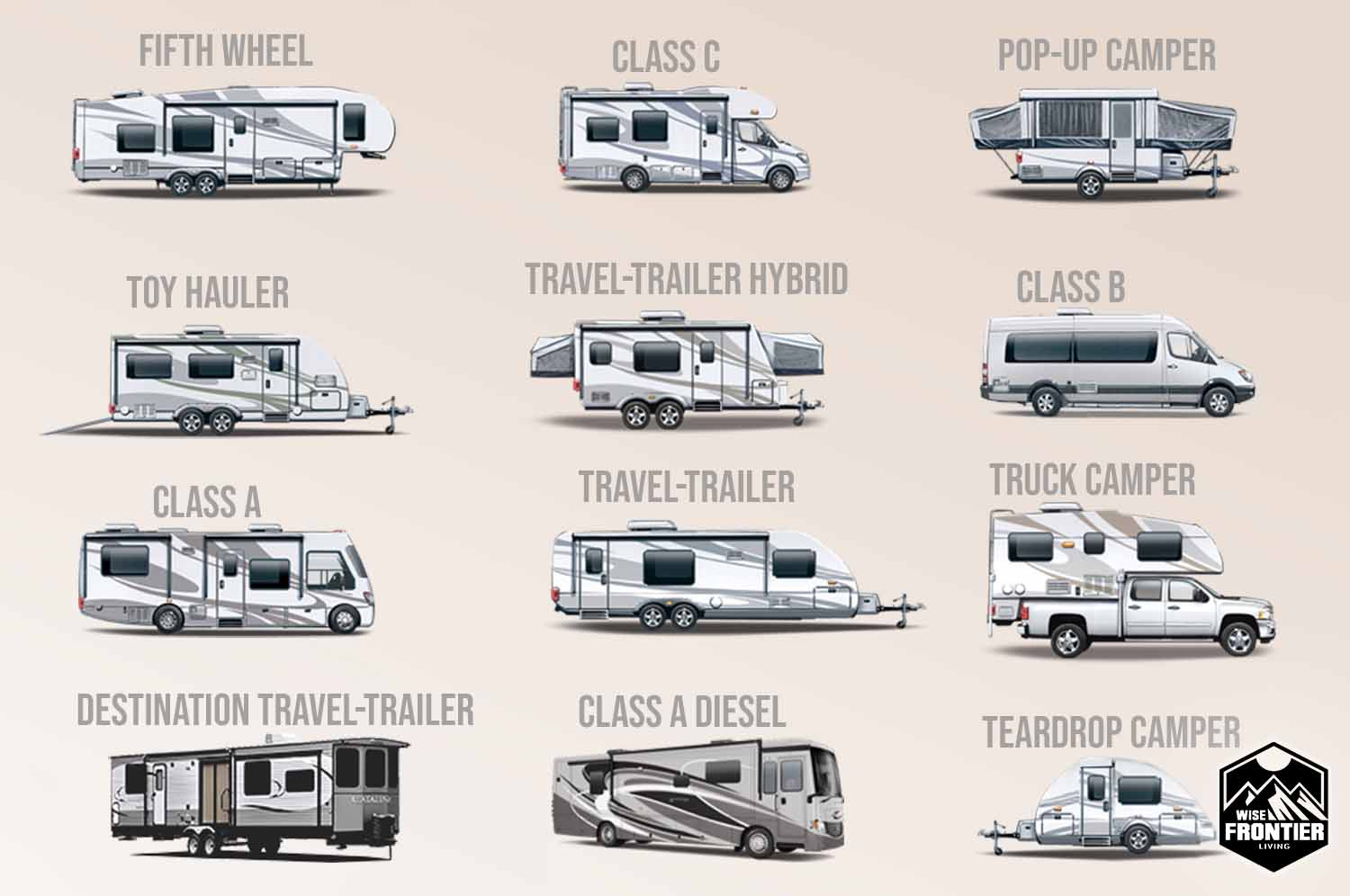
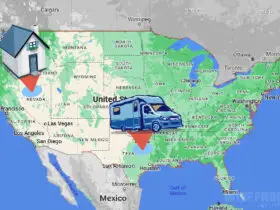


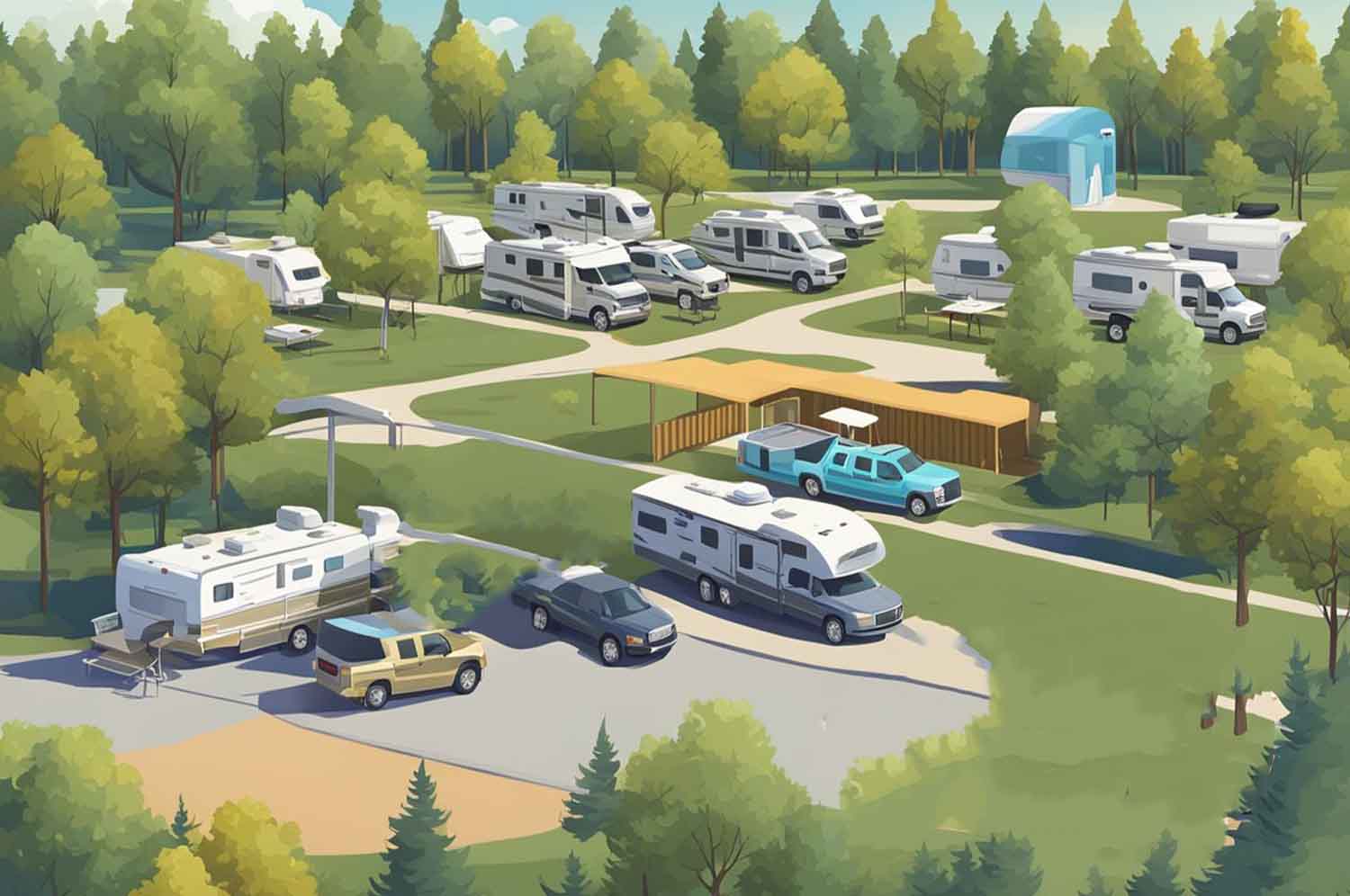


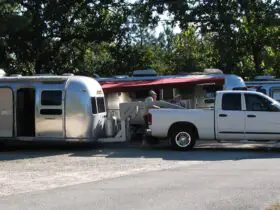
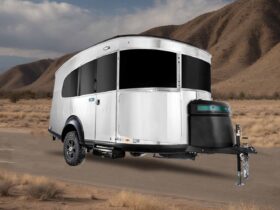

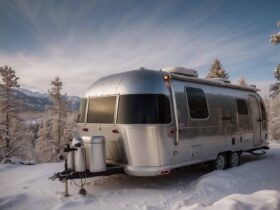
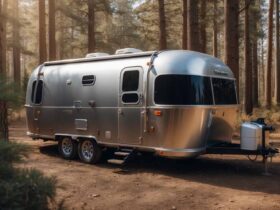
Leave a Reply